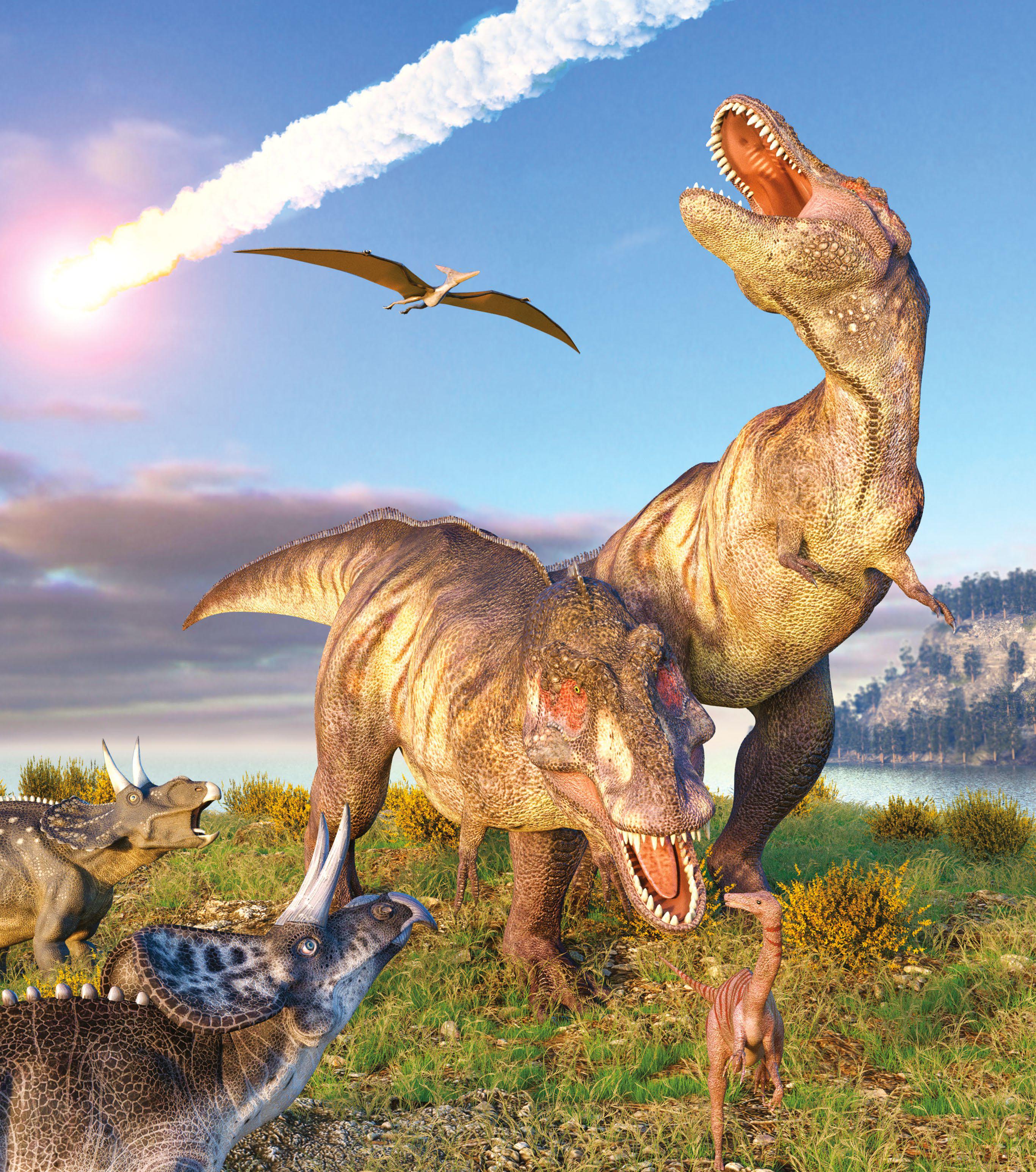
Scientists have called it the K-T event (or Cretaceous-Tertiary extinction event), when entire species of reptile-like dinosaurs, which had lived on Earth for 230 million years, vanished. Researchers agree that this mysterious event happened around 66 million years ago, but they remain undecided as to the reasons why.
The Alvarez Hypothesis
The theory that has been most popular over the years is called the Alvarez Hypothesis, which argues that a meteor the size of a mountain collided with the Earth 66 million years ago. The collision released a huge amount of dust and debris, which blocked out the Sun and caused temperatures to plunge below freezing. This led to the extinction of non-avian dinosaurs (dinos not related to birds), and many other species.
Diese Geschichte stammt aus der Issue 61-Ausgabe von The Week Junior Science+Nature UK.
Starten Sie Ihre 7-tägige kostenlose Testversion von Magzter GOLD, um auf Tausende kuratierte Premium-Storys sowie über 8.000 Zeitschriften und Zeitungen zuzugreifen.
Bereits Abonnent ? Anmelden

Diese Geschichte stammt aus der Issue 61-Ausgabe von The Week Junior Science+Nature UK.
Starten Sie Ihre 7-tägige kostenlose Testversion von Magzter GOLD, um auf Tausende kuratierte Premium-Storys sowie über 8.000 Zeitschriften und Zeitungen zuzugreifen.
Bereits Abonnent? Anmelden

Are cats smarter than dogs?
They're the UK's top pets, but which is more intelligent? You decide!

Could people turn Mars into another Earth?
Sven Bilén explores how humans might make a home on another world.

FUNNY BY NATURE
Claire Karwowski tracks down the wackiest wildlife that's cracking up the animal kingdom.

WEIRD SCIENCE
A round-up of the strangest science stories from around the world.

Guardians of the forest
Meet the incredible people protecting the Amazon rainforest.

The Mariana Trench
Dive in to find out how far down the ocean goes and what it's really like at the bottom.

Megan McCubbin
Meet the zoologist trying to change people's views of animals with a bad rep.

MAX POWER
From the second you wake up in the morning, your way of life is made possible thanks to the amazing power of electricity.

Your heart has a "brain"
New research by scientists at Sweden, and Columbia University, in the US, suggests that your heart could have its own \"mini brain\".

Ethiopian wolves could be furry pollinators
Sweet-toothed Ethiopian wolves have been seen lapping up nectar have been seen happing up nectar from red hot poker flowers.
